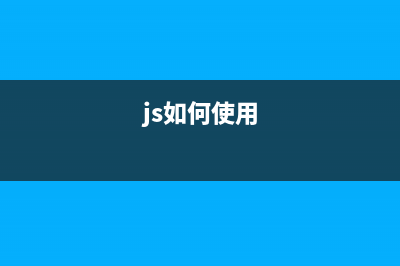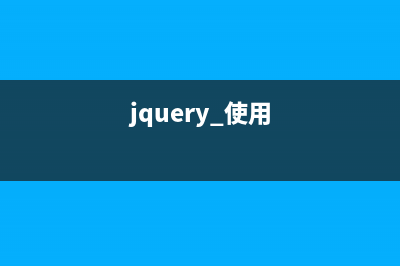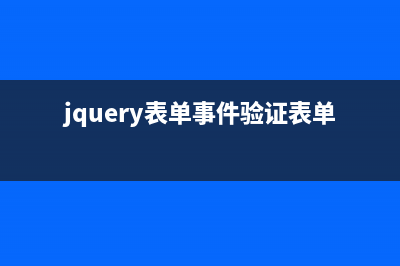位置: 编程技术 - 正文
Android学习之开源项目PullToRefresh的使用(android开发最全教程)
编辑:rootadmin推荐整理分享Android学习之开源项目PullToRefresh的使用(android开发最全教程),希望有所帮助,仅作参考,欢迎阅读内容。
文章相关热门搜索词:android开发最全教程,android 开发入门,android开发教学视频,android开发指南,android 开发 教程,最新版android开发视频教程,最新版android开发视频教程,android开发教学视频,内容如对您有帮助,希望把文章链接给更多的朋友!
首先 下载 Android-PullToRefresh-master
下载地址 我们用eclipse 创建一个项目取名PullToRefresh
将上面的library 引入我们的项目

引入成功之后打开项目的project.properties文件我们可以看到
android.library.reference.1=../Android-PullToRefresh-master/library
这样就表示可以引用成功了
我们在res/layout创建 布局文件main.xml
view sourceprint?.<?xml version="1.0" encoding="utf-8"?>.<LinearLayout xmlns:android=" >. .<!-- xmlns:ptr = " 为我们要使用PullToRefresh 里面一些属性需要引的命名空间 -->.<com.handmark.pulltorefresh.library.PullToRefreshListView.xmlns:ptr = " MainActivity.javaview sourceprint?.package com.pulltorefresh;. .import java.util.Arrays;.import java.util.LinkedList;. .import android.app.Activity;.import android.os.AsyncTask;.import android.os.Bundle;.import android.widget.ArrayAdapter;.import android.widget.ListView;.import android.widget.Toast;. .import com.handmark.pulltorefresh.library.PullToRefreshBase;.import com.handmark.pulltorefresh.library.PullToRefreshBase.OnRefreshListener2;.import com.handmark.pulltorefresh.library.PullToRefreshBase.State;.import com.handmark.pulltorefresh.library.PullToRefreshListView;.import com.handmark.pulltorefresh.library.extras.SoundPullEventListener;. . . .public class MainActivity extends Activity {. . .static final int MENU_MANUAL_REFRESH = 0;.static final int MENU_DISABLE_SCROLL = 1;.static final int MENU_SET_MODE = 2;.static final int MENU_DEMO = 3;. .private LinkedList<String> mListItems;.private PullToRefreshListView mPullRefreshListView;.private ArrayAdapter<String> mAdapter;. .@Override.protected void onCreate(Bundle savedInstanceState) {.super.onCreate(savedInstanceState);.setContentView(R.layout.main);.mPullRefreshListView = (PullToRefreshListView) findViewById(R.id.pull_refresh_list);. . ./**.* 实现 接口 OnRefreshListener2<ListView> 以便与监听 滚动条到顶部和到底部.*/.mPullRefreshListView.setOnRefreshListener(new OnRefreshListener2<ListView>() {.@Override.public void onPullDownToRefresh( PullToRefreshBase<ListView> refreshView) {.Toast.makeText(MainActivity.this, "onPullDownToRefresh", Toast.LENGTH_SHORT).show();.new GetDataTask().execute();.}.@Override.public void onPullUpToRefresh( PullToRefreshBase<ListView> refreshView) {.Toast.makeText(MainActivity.this, "onPullUpToRefresh", Toast.LENGTH_SHORT).show();.new GetDataTask().execute();.}.});. . . .ListView actualListView = mPullRefreshListView.getRefreshableView();. .// Need to use the Actual ListView when registering for Context Menu.registerForContextMenu(actualListView);. .mListItems = new LinkedList<String>();.mListItems.addAll(Arrays.asList(mStrings));. .mAdapter = new ArrayAdapter<String>(this, android.R.layout.simple_list_item_1, mListItems);. ./**.* Add Sound Event Listener.*/. ./**.* 设置下拉刷新和上拉加载时的 铃声(可有可无).*/.SoundPullEventListener<ListView> soundListener = new SoundPullEventListener<ListView>(this);.soundListener.addSoundEvent(State.PULL_TO_REFRESH, R.raw.pull_event);.soundListener.addSoundEvent(State.RESET, R.raw.reset_sound);.soundListener.addSoundEvent(State.REFRESHING, R.raw.refreshing_sound);.mPullRefreshListView.setOnPullEventListener(soundListener);. .// You can also just use setListAdapter(mAdapter) or.// mPullRefreshListView.setAdapter(mAdapter).actualListView.setAdapter(mAdapter);. . . .}.//模拟网络加载数据的 异步请求类.//.private class GetDataTask extends AsyncTask<Void, Void, String[]> {. .//子线程请求数据.@Override.protected String[] doInBackground(Void... params) {.// Simulates a background job..try {.Thread.sleep();.} catch (InterruptedException e) {.}.return mStrings;.}. .//主线程更新UI.@Override.protected void onPostExecute(String[] result) {. .//向RefreshListView Item 添加一行数据 并刷新ListView.//mListItems.addLast("Added after refresh...");.mListItems.addFirst("Added after refresh...");.mAdapter.notifyDataSetChanged();. .//通知RefreshListView 我们已经更新完成.// Call onRefreshComplete when the list has been refreshed..mPullRefreshListView.onRefreshComplete();. .super.onPostExecute(result);.}.}. . . .//数据源.private String[] mStrings = { "Abbaye de Belloc", "Abbaye du Mont des Cats", "Abertam", "Abondance", "Ackawi",."Acorn", "Adelost", "Affidelice au Chablis", "Afuega'l Pitu", "Airag", "Airedale", "Aisy Cendre",."Allgauer Emmentaler", "Abbaye de Belloc", "Abbaye du Mont des Cats", "Abertam", "Abondance", "Ackawi",."Acorn", "Adelost", "Affidelice au Chablis", "Afuega'l Pitu", "Airag", "Airedale", "Aisy Cendre",."Allgauer Emmentaler" };.}目前编码已经完成 我们测试一下
[置顶] Android屏幕适配(分辨率适配) 对于刚接触Android的新人和刚走上Android技术岗位的开发者们来说,在熟悉了相关之后,在项目完成后,就会面临着一个重大的挑战,那么就是屏幕适配的
onmeasure被调用了但是onlayout没有被调用 这个是做systemui的时候的一个bug,就是发现打开通知中心后,删除一个通知之后再也接收不到通知了,当然通知删除有个动画。通知列表放在一个scrollVie
android项目目录介绍之二 Devices:显示的是连接到Android开发环境的设备,包括模拟器和手机。Android的错误信息和调试信息都在logcat中打印在Android中,所有资源文件,都会在R.java中
标签: android开发最全教程
本文链接地址:https://www.jiuchutong.com/biancheng/374509.html 转载请保留说明!




